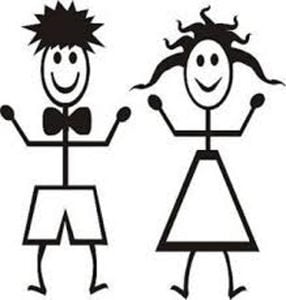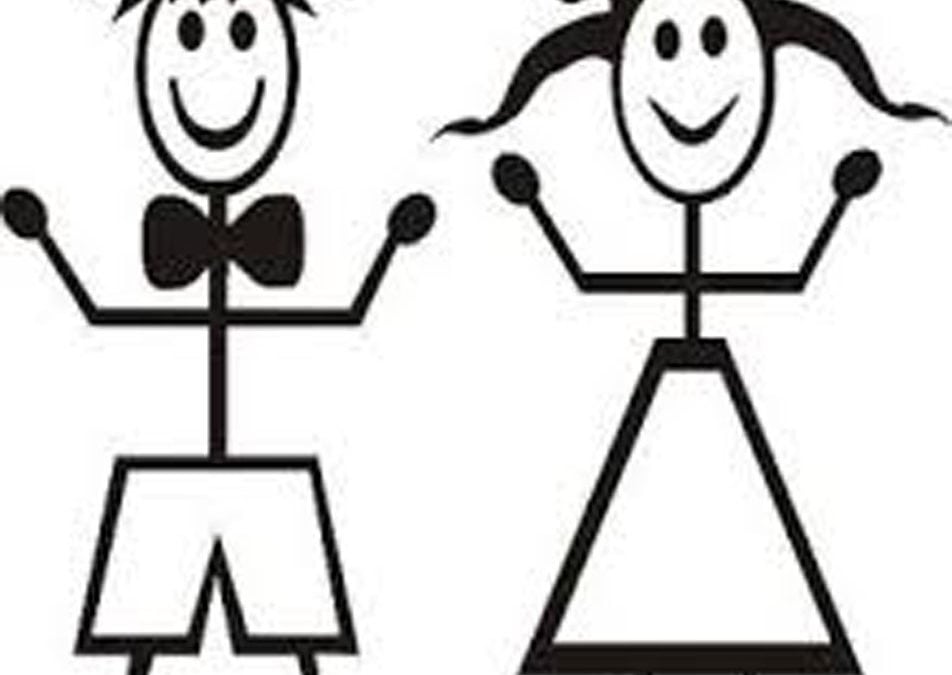
I heard about a study that sought to understand why dogs are so interested in telephone poles. The study concluded they’re not. It turns out they’re interested in the other dogs that had visited the telephone poles.
Have you heard the advice about including a person in a photograph because it will make the photograph more interesting? So rather than take a photo of a scenic view alone, have someone take a picture of you in that scenic view, or if you can put a friend in the picture – do so. People are more interested in scenic views when there’s a person in it.
So dogs are interested in other dogs and people are interested in other people. That makes sense.
I was reminded about these two pieces of knowledge when I recently realized how often people recognize, compliment and celebrate things or actions rather than the people who create or produce them.
For example, the other day I heard someone say, “That’s a great attitude.” Other examples are “The meeting went well” or “The presentation was excellent.”
Each statement is nice, pleasant and likely meant in a complimentary way. I believe they are wonderful things to say if the speaker or writer believes them to be true. I also believe we can change them a bit so they draw attention, ownership and praise to the person or people they’re about. By doing so, we can make a more positive impact.
Notice that each statement acknowledges or celebrates a thing or an event rather than the person or people involved.
Notice also that each statement requires the presence, involvement or action of a human being. It takes a person to have an attitude, it takes people to have a meeting and it takes a person or some people to make a presentation. Beyond the statements requiring a person, it seems to me the person making the statement usually does so to compliment the person or people they’re speaking with or writing to. In other words, the “star” of the statement really is a person or group of people.
So, even though a person or some people are necessary for each, and even though the star of the statement is really a person or some people, all the statements leave out the human being(s).
How can the statements be improved? It goes back to the advice about making photographs more interesting – put some people in there.
“That’s a great attitude” becomes, “You have a great attitude.”
“The meeting went well” becomes, “You did a nice job running the meeting” or “You all collaborated well during the meeting.”
“The presentation was excellent” becomes, “You made an excellent presentation.”
A couple more examples:
“I appreciate the help finishing the project on time” can become, “I’m grateful to you for helping me finish the project on time.”
“Thank you for your time” can become, “Thank you for sharing your ideas and helping me.”
Here’s an example of a time I could have done better by following my own advice.
I was walking down a hall with someone and we came to a door. They pulled their sleeve down to cover their hand as they reached for the handle. In doing so, they explained that they had a cold and didn’t want to leave behind any germs on the handle.
To acknowledge them for it and provide some positive reinforcement, I said, “That’s very considerate.” My intent was good, and I believe they appreciated it, as they smiled and nodded.
Thinking about it later, I realized I made my praise about the action rather than about the person. Sure, it was a very considerate action. The thing is, it took a very considerate person to perform the very considerate action. Why not put the person, the hero, in my sentence?
I wish I had said, “You are very considerate for doing that.”
I’ve been paying attention to what I say to make sure my compliments and praise land where I really want them to land. I enjoy the process of being self-aware, I’m happier with how I’ve been expressing myself, and I believe my compliments, praise and celebrations of success are having a more positive impact on those I’m interacting with. I like it more, too, which is nice.
You decide how you say it. Use language that really captures where your appreciation, compliment or praise lies. Does it extend only to the thing or the activity, or does your gratitude or praise reach all the way to the human being?
I appreciate you for reading my article. You honor me by doing so.
© 2016 Rob Otte
Rob Otte is a teacher, speaker, writer and coach. He is the Director of Corporate Training and Development for Roehl Transport, Inc. in Marshfield, Wisconsin. Roehl Transport is a freight transportation and logistics company employing 2,500 people. You may contact Rob at otte.rob@gmail.com.
Thoughts for the week:
Appreciation can make a day, even change a life. Your willingness to put it into words is all that is necessary. –Margaret Cousins
Trade your expectation for appreciation and the world changes instantly. –Tony Robbins
Appreciation is a wonderful thing: It makes what is excellent in others belong to us as well.
-Volaire
I’ve learned that people will forget what you said, people will forget what you did, but people will never forget how you make them feel. –Maya Angelou
Appreciate what you have, before it turns into what you had. –Unknown
The only people you should try to get even with are those who have helped you.
–John E. Southard
Looking forward to our next conversation


Recent Comments